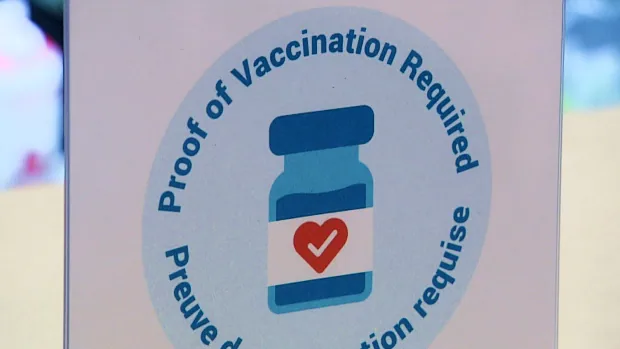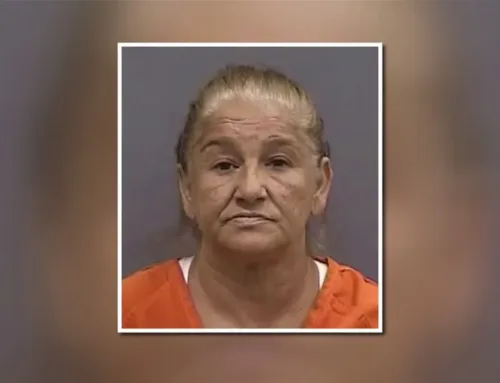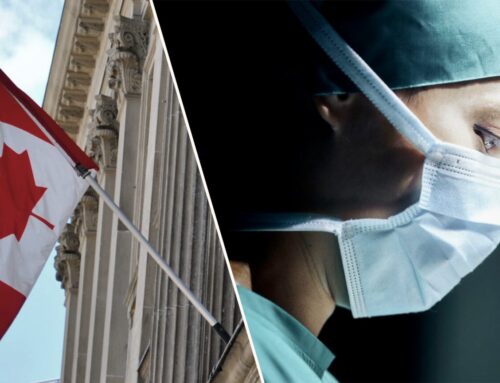Mia Urquhart
Published:January 12, 2022
-CBC
For a brief time in December, New Brunswick retailers who sell groceries had the option of asking customers for proof of vaccination, rather than reducing capacity.
But after public outcry over the choice — and some misunderstanding that it was only an option and not a requirement — the government did an about-face, and on Dec. 17, the mandatory order included a section that explicitly prohibited stores that sell groceries from asking for proof of vaccination.
It read: “The option of requiring proof of vaccination instead of requiring distancing is not available in locations at which groceries are retailed.”
That line only lasted for 10 days. By Dec. 27, it quietly disappeared. So what does its absence mean for businesses?
Every weekday since Jan. 3, CBC News has asked government officials to answer that question. The Department of Health passed it along to the Department of Justice, which passed it back to the Department of Health — and still no answer has been provided.
Most businesses didn’t even realize it had been removed. In fact, the CEOs of the chambers of commerce in the province’s three largest cities all say they weren’t aware of the change until contacted on Monday.
The CEO of the Saint John Region Chamber of Commerce said the section “was conspicuous in its absence.” David Duplisea wondered if the change was “sneaked through” or whether the government simply forgot to notify the business community.
Either way, he said, it’s important for business owners to know if they have the option — even if it seems as though most aren’t interested in it.
“I’ve not heard a single retailer or grocery store say we’re going to start asking for proof of vaccination,” said John Wishart, the CEO of the Chamber of Commerce for Greater Moncton.
Jim Cormier, the Atlantic director of the Retail Council of Canada, said his members never had any intention of asking customers for proof of vaccination.
When he heard New Brunswick’s announcement in December, he said he made some phone calls to members who sell groceries, “and they all told me the same thing — that regardless of the option that was given to them, they had no intention of putting that into place.”
Although the order did not specify what constitutes a grocery retailer, Cormier suspects that the option was likely targeted toward “a smaller business that didn’t necessarily have the size or space to constantly distance people.”
He said traditional grocery stores “never had any intention of putting that into place.”
In an emailed response from Sobeys, the company’s public affairs lead, Sarah Dawson said, “Grocery retail is an essential service and as such we do not check the vaccination status of our customers.”
Boyce market planned to use it
One of the few locations to say they were going to ask for proof of vaccination as a way to avoid reduced capacity was Fredericton’s Boyce Farmers Market. At the time, a spokesperson for the market said that because of the constraints of such a small venue, physical distancing was difficult.
On Dec. 17, the same day the province explicitly stated that the option was not available anymore, the board of directors of the market issued a statement via social media to inform the public that the rules had changed and they had only one option — impose physical distancing.
“This change will result in a reduced number of patrons inside the Market at any one time and patrons may encounter line ups to enter the building. We will do our best to keep things moving along.”
The statement also explained the board’s “difficult decision” when faced with the option of full capacity by requiring proof of vaccination.
“We understood the challenge this represented for some of our patrons and understood it crossed a troubling line in restricting access to our essential food services. However, the alternative was to enforce two-metre distancing and limit patrons in the market to such a degree we feared our already weakened businesses wouldn’t have enough patrons buying enough goods to remain viable. It was an extraordinarily difficult decision.”
Despite several attempts this week and last, the market declined on Tuesday to make any comment or clarify whether it would like the option of proof of vaccinations reinstated.
The December flip-flop
On Dec. 3, Health Minister Dorothy Shephard announced that retail outlets, salons and grocery stores could opt to require proof of vaccination from patrons, rather than enforce physical distancing and have to reduce capacity.
The move to include grocery stores, which are considered essential, prompted a wave of questions and criticism, particularly on social media.
Shephard later clarified, saying the intent was to give grocery stores a choice.
On Dec. 17, the province revised the order to explicitly exclude grocery retailers from the option of asking for proof of vaccination.
Then, on Dec. 27, all mention of the proof of the vaccination option for grocery retailers was removed. No mention was ever made in government announcements, and business groups were not notified.
Those groups are now waiting for government officials to tell them what the rules mean for retailers who sell groceries.
All other retail operations that do not sell groceries can still require proof of vaccination — or reduce capacity and ensure social distancing. The choice is theirs.




